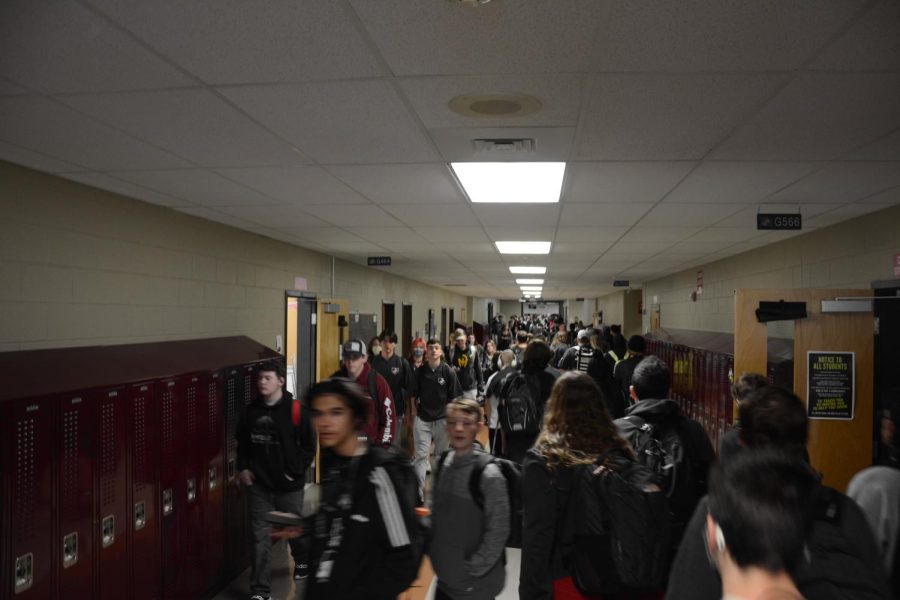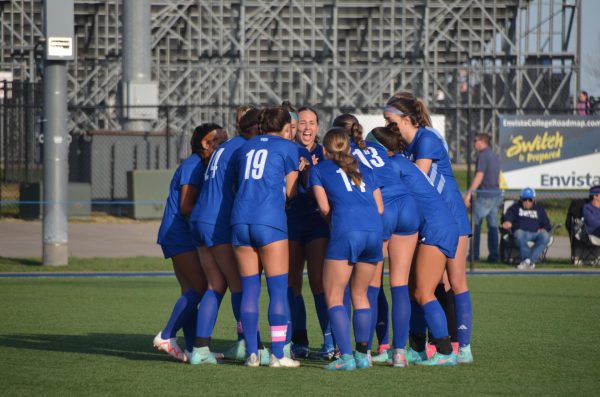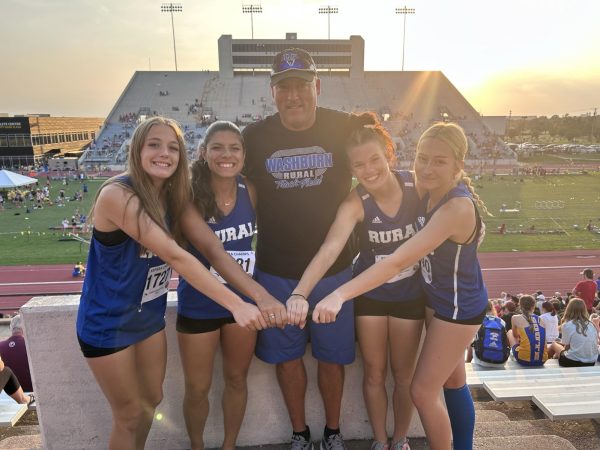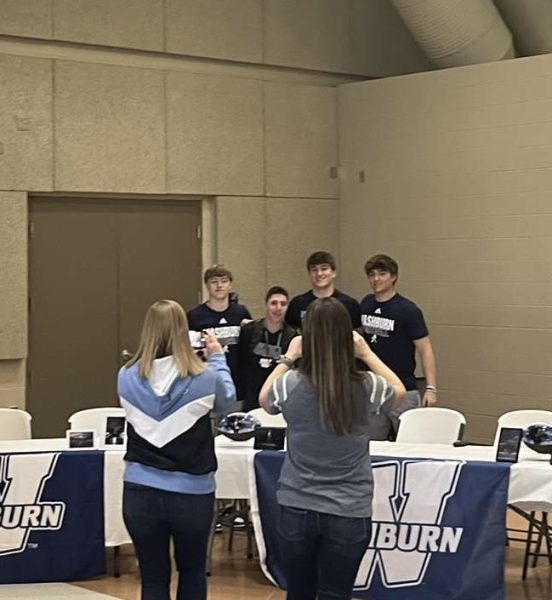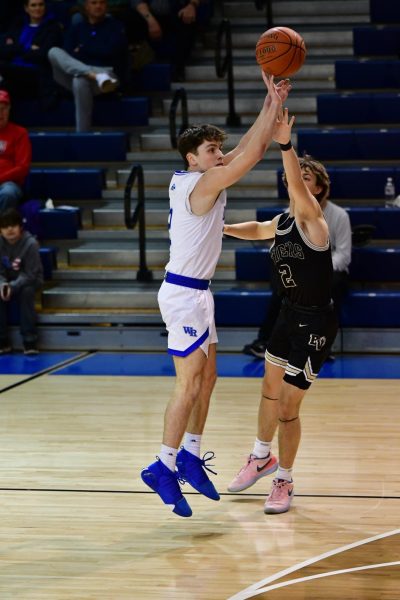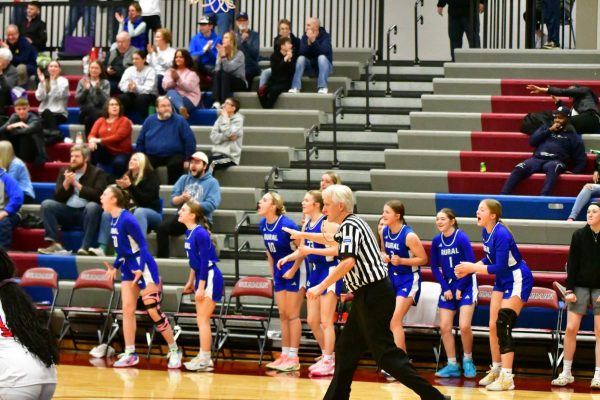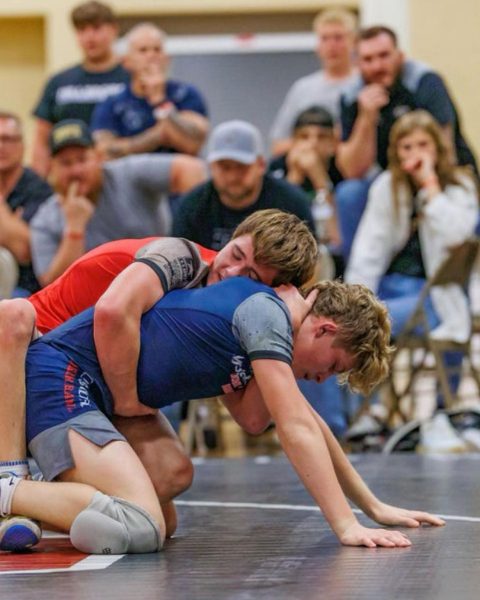Challenges of the COVID pandemic still persist
February 14, 2023
For the past 10 years Brian White, Executive Director of HR & Operations for Washburn Rural High School, has been responsible for promoting and implementing human resource value by coordinating HR programs in the district. He supervises the process of recruiting, orientation, training, and, importantly counseling, of the employees.
He also had to over come a lot of challenges throughout the COVID-19 pandemic and beyond. Nobody knew much about COVID, and there was a lot of uncertainty. Everything was thought of on the spot so it was hard to communicate. During the COVID 19 pandemic Mr. White had some trouble with both parents and students. He told us, “People are like a rubber band ball. People are the rubber bands and the ball itself is their comfort zone. If you stretch them, their personality, they can only go so far before they snap.”
Because of the false information the media was giving, people started to mistrust experts. This only further the change in the workforce of America. People needed to learn to work from home, changing their entire environment. Teachers needed to learn how to work online and adapted new ways to teach their students.
According to news stories, enrollment in public and private schools decreased by 15,300; attendance dropped while chronic absenteeism and truancy have gone up since the pandemic began. At the start of this school year, all Topeka districts mandated masks indoors except Auburn-Washburn USD 437, where they were recommended but not required.
After the first week of school, Auburn-Washburn had confirmed COVID cases in 47 students and 3 staff, with 167 students and staff quarantined. The school board called a special meeting. After more than three hours and listening to 35 members of the public, the board voted to mandate mask-wearing.
“We did experience a decrease in enrollment as a result of the pandemic we have seen that start to come back up. Officials have to decide whether to hold classes during an outbreak, cancel school or offer online education and risk a loss of state funding. We hope that continues to grow and get back to our our numbers and where they were before.” White said “We also work with our current staff like our paraprofessionals, become teachers. We have some programs partnering with Washburn University. They have a start program for paras-to-teachers. We also look at how we can help other members in our community transition to teaching from other careers.”
That program, which the board passed in January, came to be after the omicron variant of COVID reduced the number of substitute teachers. The program was intended as a stop-gap measure that allowed anyone 18 or older with a high school diploma, in addition to passing a background check, to substitute teach in the state for just this school year.
Regular substitute teacher licenses require holders to have earned at least 60 college credits. Education Commissioner Randy Watson said that was his understanding, too. But he pointed out that “there is nothing magical” about the 60 college credit hour requirement and that those college credits may even be in fields totally unrelated to education.
One in six Kansas teachers say they may leave public education early, adding to staffing fears. Lots of people were forced to work for other industries because Auburn Washburn was forced to keep their wages low. “We couldn’t raise our wages because we only had so much money to give away,” White said. “So we were at a loss. Nobody wanted to work here because other places were paying more than we were. They had families they needed to take care of, and our pay wasn’t going to be enough.”
Changes also occurred in the students’ lives. A study on education during the COVID-19 pandemic found that Kansas students lost months of learning between 2019 to 2022, with students in lower-income school districts experiencing the biggest losses.
“Students, along with staff, needed to be back in school.” White said. “They were losing lots of education opportunities.”
The pandemic affected school districts differently, creating huge academic losses in some districts and leaving others untouched. The COVID 19 pandemic was forcing people to retire, and lots of older people died due to the pandemic. Board of Education leaders in Topeka’s Auburn-Washburn District (USD 437) said that this has been a problem for a few years, but this year the shortage is becoming even more drastic, especially surrounding the COVID-19 pandemic.
The lunch staff also decreased significantly and food supplies were running low durning the pandemic. In the Auburn-Washburn school district, all students were allowed free lunch. This was because many students relied on the school for food, because they were getting little to none at home. Parents on social media said busses in the district have been running late, especially over the first few weeks after the district went back to school.
The reasoning is that some bus drivers are having to double up on driving routes throughout the morning. Rich Jones, Director of Operations for the district, spoke about National School Bus Safety Week, which begins Oct. 21, but while speaking to the board his primary concerns were unfilled positions in the transportation department.
At a school board meeting last year Jones said, “We’re down ten drivers. We’ve got mechanics driving, maintenance guys driving, administrators driving, (Washburn Rural High School athletics director) Penny Lane is driving. Everyone is helping out. It’s critical right now.” USD 437 was down about 15 bus drivers in 2021 and ten in 2019 when the pandemic first hit. These bus drivers make more than 20 dollars an hour, but they need special licenses and training in order to be qualified.
Jones added, “Many people were too scared to drive that many kids at once, along with having to drive a vehicle as big as that, they just didn’t want to do it.” A few schools lost up to 70 certified staff members last year — about 13.5% of their total certified staff. Now, Auburn Washburn is operating almost as it was before, as are most other schools in Kansas.

